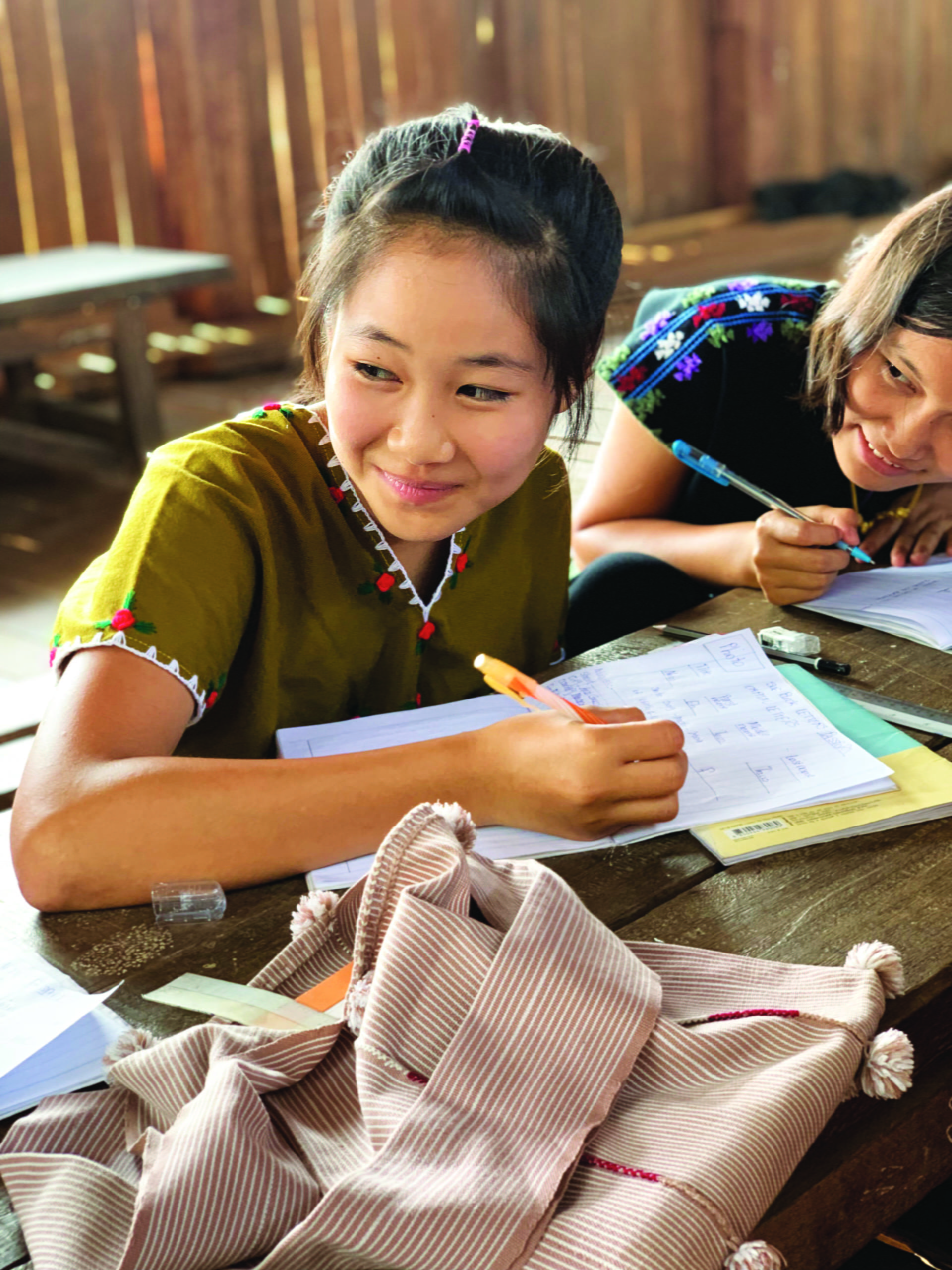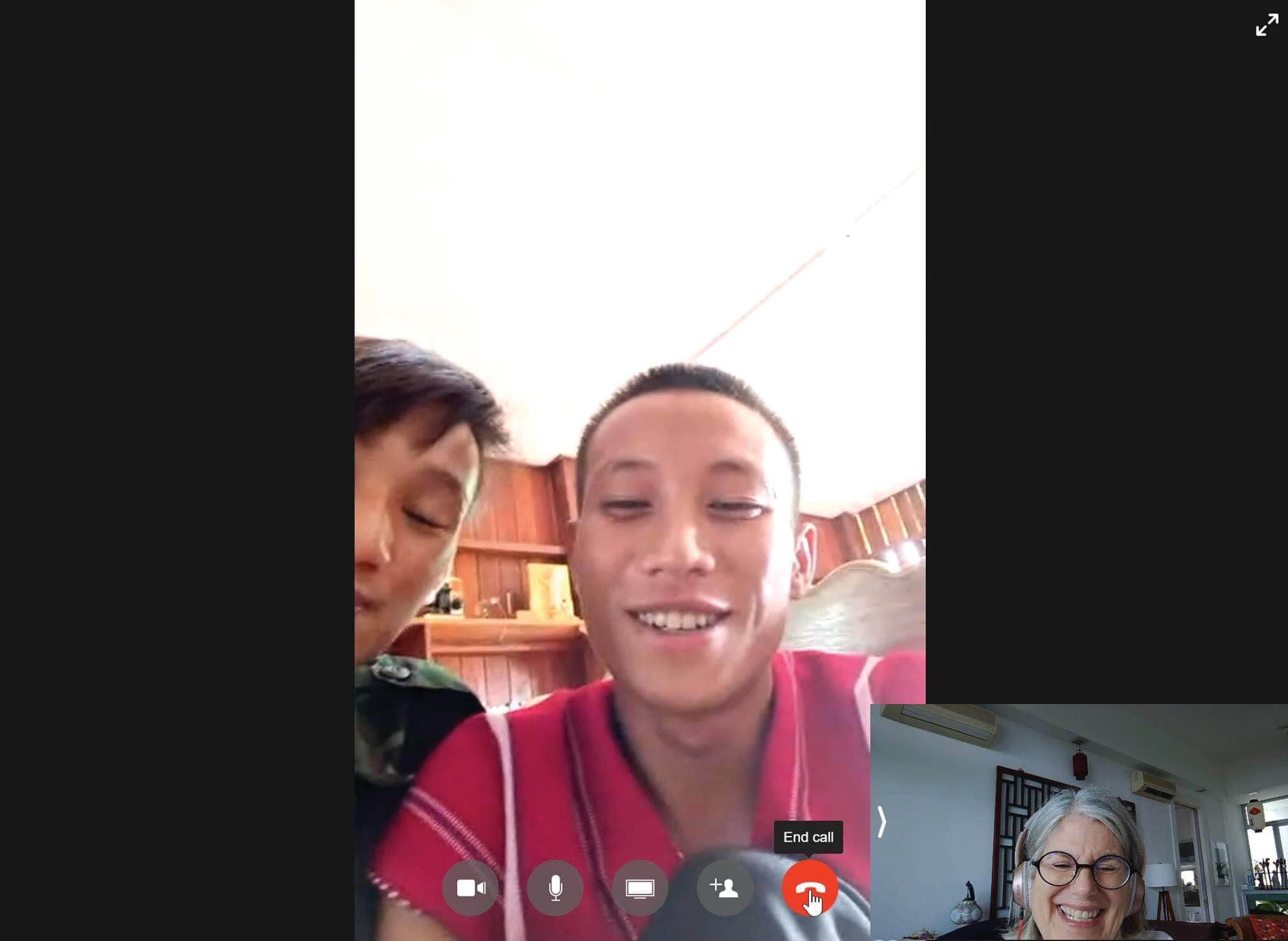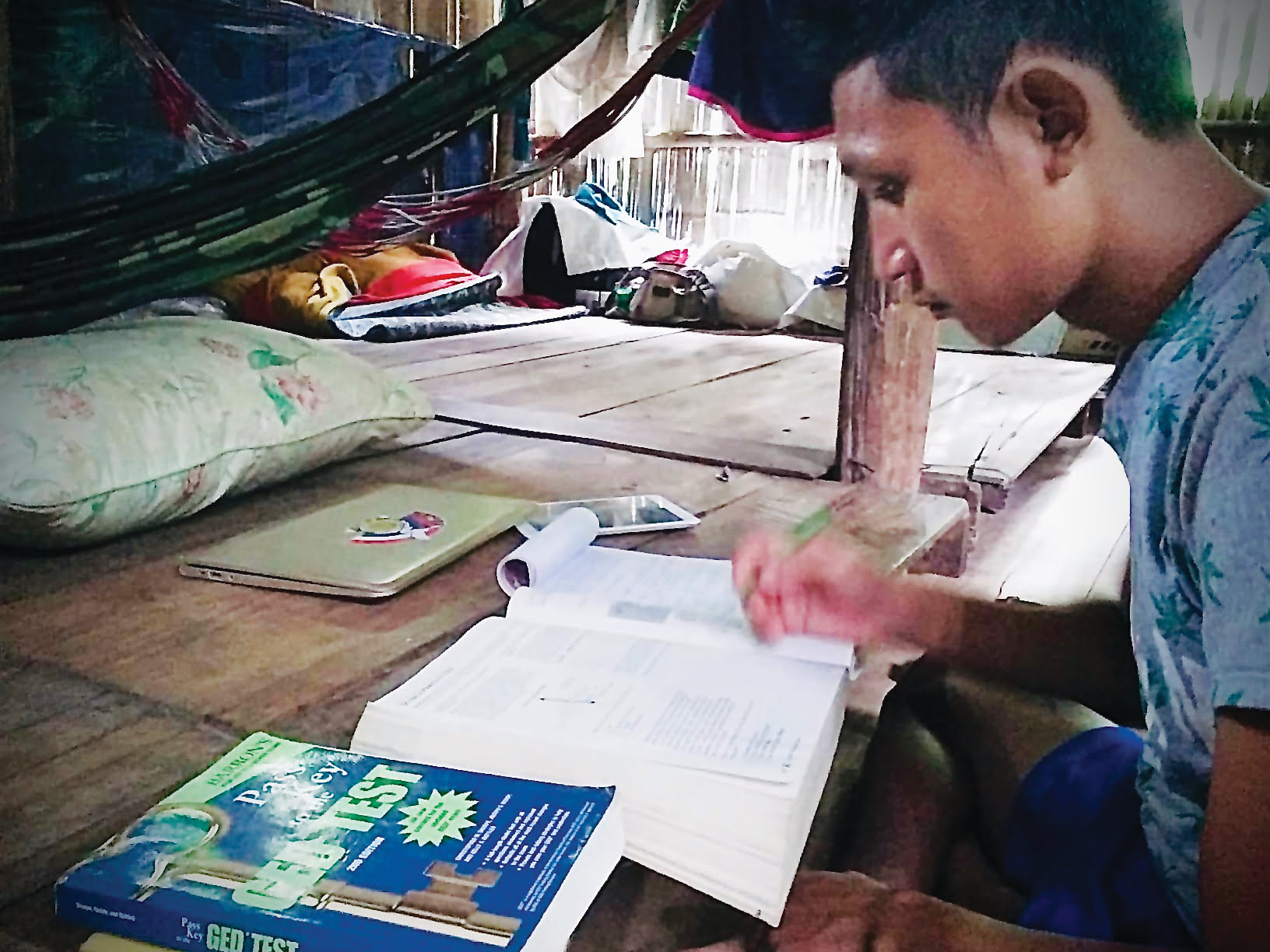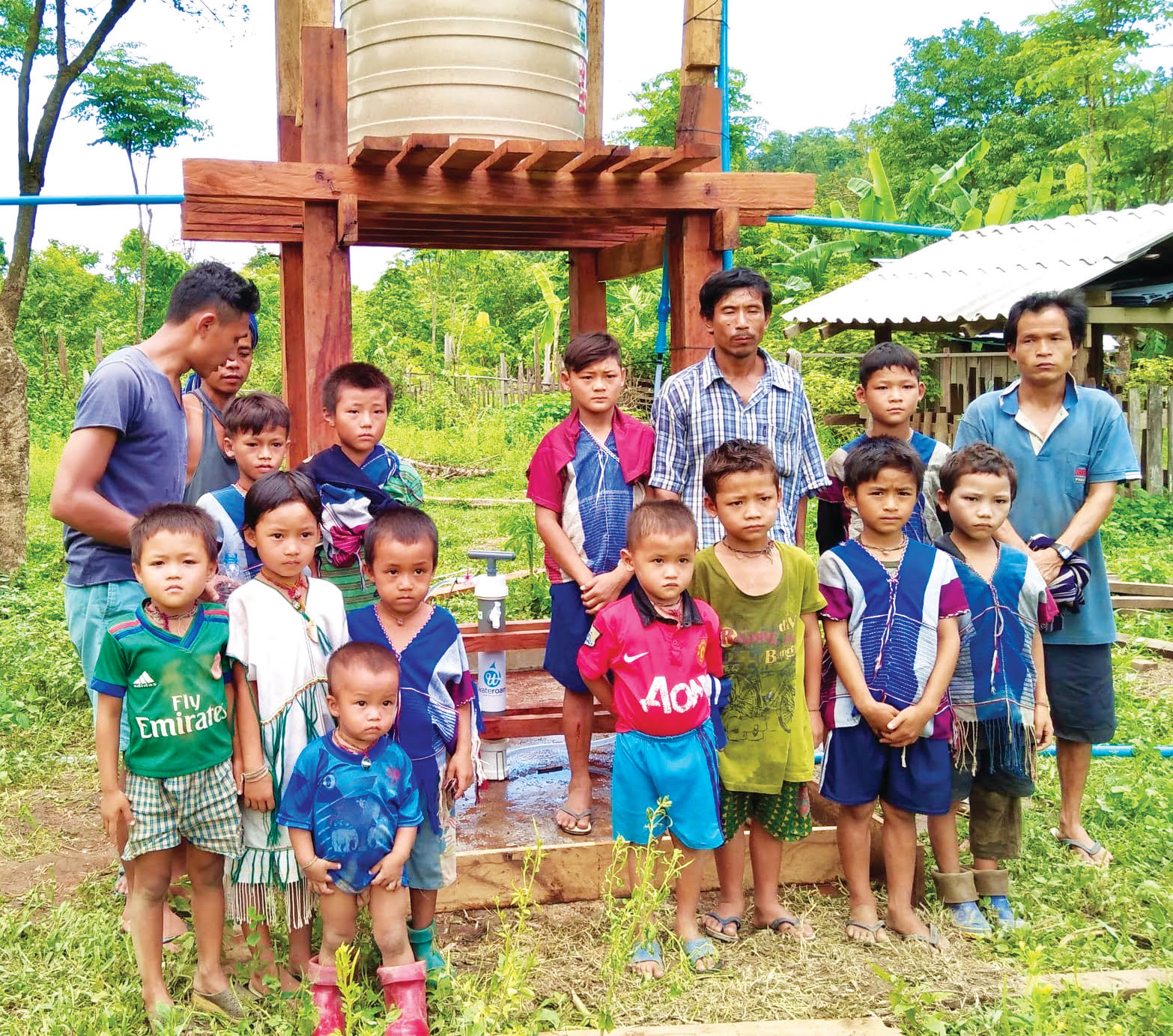
What is Virtual English Tutoring?
We’re matching people from around the world with Karen students from the Thai-Burma border region. I had a number of students asking me to help them with their English and it expanded to a group of ANZA members who were also assisting with English proficiency skills. We were having so much fun and found it such a hugely rewarding experience that we decided to expand it. Groups like Friends of the Museum Singapore and Rotary International joined with the ANZA members and their friends and families. Now we have over 50 tutors from Australia, Singapore, Thailand, Belgium, UK, Ireland and the USA working with 50 students. Because of poor bandwidth in the region we do all our tutoring one-on-one.
Why is it important they continue their English studies?
Schools and colleges were closed during the pandemic, like in other places around the world. Many students were stuck in their remote villages without textbooks and with weak data connections. The students in this region are particularly susceptible because many are in refugee or Internally Displaced Persons (IDP) camps or are stateless. This means travel back to migrant schools in Thailand is impossible or at best very dangerous.
What impact has COVID-19 had on schools and tertiary institutions in this region?
Many students travel from areas in Myanmar where there is civil unrest, to stay in school and college dormitories in Thailand. Attending school is not only about accessing education, but also having a safe place to study. Unfortunately, COVID-19 has meant that the students are again in a precarious position, so we are trying to bridge the gap until travel and education is again possible for them.

What sort of volunteers are you looking for?
The volunteers need to have a willingness to grapple with the various challenges that are thrown up, such as technological breakdowns. They must have the ability to be creative about teaching with few or no resources. Most students have only a phone, an exercise book and a low budget for data.
What do volunteers need to do the job?
To volunteer you do not need to be a teacher. Anyone who is willing to work on English speaking, listening, reading and writing with the students, we will embrace. We love to incorporate exchanges about our countries and cultures into the learning experience.
Are the sessions informal? How do they work?
We don’t have a set curriculum, but rather try to meet the student where they are at and build on their interests. Our English as a Second Language (ESL) teachers have curated a list of resources that the volunteers can use. We ask that volunteers spend at least one hour a week with their student, but it needs to be flexible for both volunteer and student. Some tutors and students work together five times a week if they are aiming to pass English proficiency tests such as IELTS, or enter Thai university – other pairs just chat informally.

What are some of the challenges?
Bandwidth and purchasing data are two of the biggest constraints. The most affordable and stable communication is via Facebook messenger. If the student has access to Wi-Fi, some lessons can be on Zoom, but in remote villages we need to fall back to text only. Something is better than nothing! It also gives the student connection to the outside world and a feeling that someone is looking out for them in these crazy Covid times.
What are the benefits for both volunteer and student?
Most of our tutors say that it’s a richly rewarding experience to see their student progress in English, for others it’s been an immersive experience learning about Karen culture and history. The students have not only developed their English skills but have also learnt about technology, business, science, and politics and have a connection with someone from another country. If the students are in lockdown in a refugee or IDP camp they have something to look forward to, and it engenders hope for the future.

Do you have any success stories or great matches?
We have a couple of matches made in heaven. There are some highly qualified ESL teachers that will assist students to take up scholarships, one in a Masters program at an international university as a result of the program. There are other more practical connections, such as a tutor who was involved in the tourism business that was fortuitously matched with a student who has dreams of pursuing a career in the industry. They are working on English and future job opportunities together.
There have been other surprising positive effects. I was discussing the transmission routes for diseases with one of my students when he promptly informed me he would give up eating rats after the discussion. Rats are a common food source when families need to flee from their villages and hide from conflict in the jungle.
How can people get involved?
We have an expression of interest form for volunteers here or people can contact me on safewatermyanmar@gmail.com








